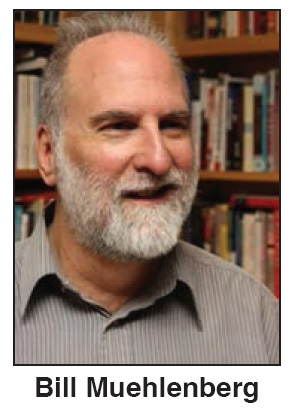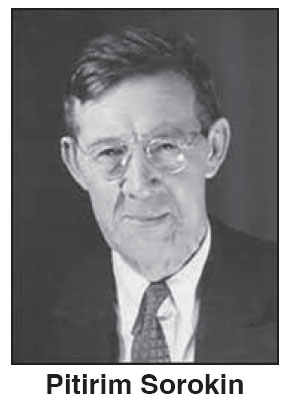Era of emoting spells West's decline by Bill Muehlenberg
 A culture based only on feelings and sensations is a doomed culture.
A culture based only on feelings and sensations is a doomed culture.
Civilisations used to be based in good measure on reason and mental and moral clarity, on rationality and common sense. Sadly, most of that has been swept away in the West and we now mainly live on one thing: emotions. How we feel tends to determine everything. The sensual has outstripped the intellectual. We are now a sensate culture.
American Catholic Archbishop Fulton J. Sheen (1895–1979) once put it this way: "We live in a sensate age. We are no longer governed by Faith; we are no longer governed by reason. We are governed by feelings."
Or, as he put it in his autobiography, Treasure in Clay, released a year after his death: "The reason why chastity is on the decline is that we live in a sensate culture. In the Middle Ages there was an Age of Faith, then came the Age of Reason in the 18th century; now we are living in the Age of Feeling."
Yes, he got that right! And others have said similar sorts of things.
Back in 1996 the American Protestant theologian Harold O.J. Brown (1933–2007), penned his valuable volume, The Sensate Culture: Western Civilization Between Chaos and Transformation (Word). He in turn drew heavily upon the important work of Russian/American scholar Pitirim Sorokin (1889–1968).
The Harvard sociology professor penned a number of very important works, including The Crisis of Our Culture (1941) and The American Sex Revolution (1956). The former book was based on his four-volume study, Social and Cultural Dynamics (1937–1941).
The great value of Brown's volume is to remind us of the vital truths that Sorokin had written about, but are now largely forgotten. In 250 pages Brown takes us through his thoughts and looks at how American culture is faring. Since his book is still available, my main interest here is to offer some meaty quotes from it in the hopes of getting you interested enough to read this volume for yourself.
 Early on in his book Brown says this:
Early on in his book Brown says this:
"Sorokin identified three distinct phases through which
cultures pass: ideational, idealistic, and sensate. Each phase has
distinctive characteristics and in general runs a specific course.
Virtually every human society can be found at any particular
time to be in one phase or another, or in transition between two
of them...
"The ideational mentality sees spiritual truth and values as virtually the only truth and values worthy of the name. God and the divine world are the highest and truest realities...
"The idealistic mentality represents a compromise between the ideational and sensate, although it inclines more to the ideational. Like an ideational culture, an idealistic culture rates spiritual truth and values above all others, but it also appreciates the realities and values of the sensory world and does not treat them as meaningless or non-existent...
"The sensate mentality is the exact opposite of the ideational mentality. It is interested only in those things, usually material in nature, that appeal to or affect the senses. It seeks the imposing, the impressive, the voluptuous; it encourages self-indulgence...
"Western culture, as we shall show, is in the last stages of the sensate phase, or, to use Sorokin's expression, it is a late, degenerate sensate culture. By degenerate he means that many aspects of culture that were once well-defined, well-coordinated, and productive have begun to lose their former balance and harmony, becoming shrivelled or bloated, non-functional or counterproductive...
"Modern sensate Western culture has not been in existence quite as long as the sensate culture of ancient Rome was before the impact of Christianity caused its great shift, but things move faster now. May we expect the kind of constructive renewal that created medieval Christian civilisation out of the ruins of pagan Rome and the barbarian invasions? And if so, where will it come from? Does Western Christian civilisation have the resources to renew itself, or has it entered a late, degenerate phase from which it cannot recover?"
He concludes his opening chapter with these words:
"The concept that a society can get along totally without
religion is quite new. From France, the United States inherited
a certain tendency to rationalise in the French sense — to seek
to carry the theoretical principles of government to their logical
conclusions. This has led in the United States to transforming
the principle of non-establishment (of a state church) to a radical
separation of church and state, which by the end of the twentieth
century has increasingly come to mean the radical exclusion of
all that is religious, and particularly of all that is Christian, from
visibility in public life.
"This gradual abandonment of the Christian heritage of Western nations has now become a deliberate rejection. As such, it marks the final stage in the repudiation of an idealistic view of life and the world — one that believed in spiritual reality and in the personal God of the Bible, without disdaining the material realities and values of God's creation — and its replacement with a sensate materialism that recognises no reality but that which can be seen, heard, smelled, and felt."
He then looks in great detail at a number of key issues: education, law, medicine, politics, ethics, and the arts. He makes it quite clear that in all these areas we see how America in particular and the West in general are certainly demonstrating what the sensate culture is all about, and how dangerous it really is.
The final paragraphs of his book are worth running with in
full:
"Sorokin predicted in 1941 that Western society would shortly
begin to turn away from its preoccupation with material goods
and physical pleasures and look again to the spiritual world.
In the 1960s, the visionary Christian thinker Francis Schaeffer
predicted that the closing decades of this century would be a
time of 'contentless mysticism'.
"It is apparent that such a trend has begun. To some extent their predictions are being validated, for Western society is turning away from the greedy pursuit of the goods it consumes in such abundance and is beginning to cast about for spiritual guidance. The decisive question, at this stage of our cultural history, is not whether we shall become more spiritual, but what kind of spirituality we shall embrace.
"George Orwell and Aldous Huxley predicted 'brave new worlds' of faceless, spiritless totalitarian tyranny. Paul Ehrlich predicted worldwide hunger and mass starvation. Hal Lindsay foresaw Armageddon, giving or at least hinting at dates for those catastrophes. So far, not one proved right. Oswald Spengler, operating with a much broader perspective and viewing the entire sweep of human history, thought the demise of our culture unavoidable. Only Sorokin hoped that we are at the beginning of a transition to a new ideational or idealistic phase of civilisation. The others have all proved wrong, at least so far. Will the few who hope turn out to be right?
"Perhaps even a refreshed, sensitive, and confident Christianity cannot renew this sensate culture, but if it cannot, it is not easy to imagine what might do so. In the words of the Austrian sociologist Hans Millendorfer, 'The future will be Christian, or it will not take place.' To those who have suffered intolerance, discrimination, and abuse at the hands of hard Christians and their nominally Christian institutions, those words may sound menacing, but if the word Christian can be understood as pertaining to Christ, and if Christians in their majority can show that they know what that expression really means, then they will not be threatened but hopeful.
"Our culture is close to the end of a road but not necessarily at the end of the road. There is a way that leads to destruction, as Jesus said, but there is also a way that leads to life. The dies irae [Day of Wrath] is a real possibility but not the only one; indeed, not even the most probable one, if indeed there is a God and he has a purpose for his human creatures. 'Blessed is he who comes in the name of the Lord' (Matt. 21:9)."
Very important thoughts indeed. Twelve years ago, I concluded
a similar sort of article, "Our sensate culture" (CultureWatch,
August 30, 2010), with these words:
"Even if the West does self-implode, God is not finished with
planet Earth. He is actively moving in the developing world,
with church growth making leaps and bounds in Asia, Africa and
Latin America. If the Western church will not get the job done,
and fight the good fight, then God is quite capable of raising up
for himself a people who will get the job done.
"The church in the West is quickly forfeiting its role in God's greater redemptive purposes. If that is the case, God can easily move off shore and continue his work of establishing his Kingdom. And that he is doing. I for one, however, would like to see the Western church get its act together, and join God in the great end-time harvest.
"Whether we do or not is entirely up to us. But 'as for me and my house, we will serve the Lord' (Joshua 24:15)."
Bill Muehlenberg is an American-born Christian apologist,
ethicist and cultural commentator, who lives in Melbourne. He
has written a number of books, including Strained Relations:
The Challenge of Homosexuality (2011), The Challenge of
Abortion (2015) and The Challenge of Euthanasia (2016).
The above article is reprinted, with the author's permission,
from his website, CultureWatch, at: BillMuehlenberg.com
![]()
